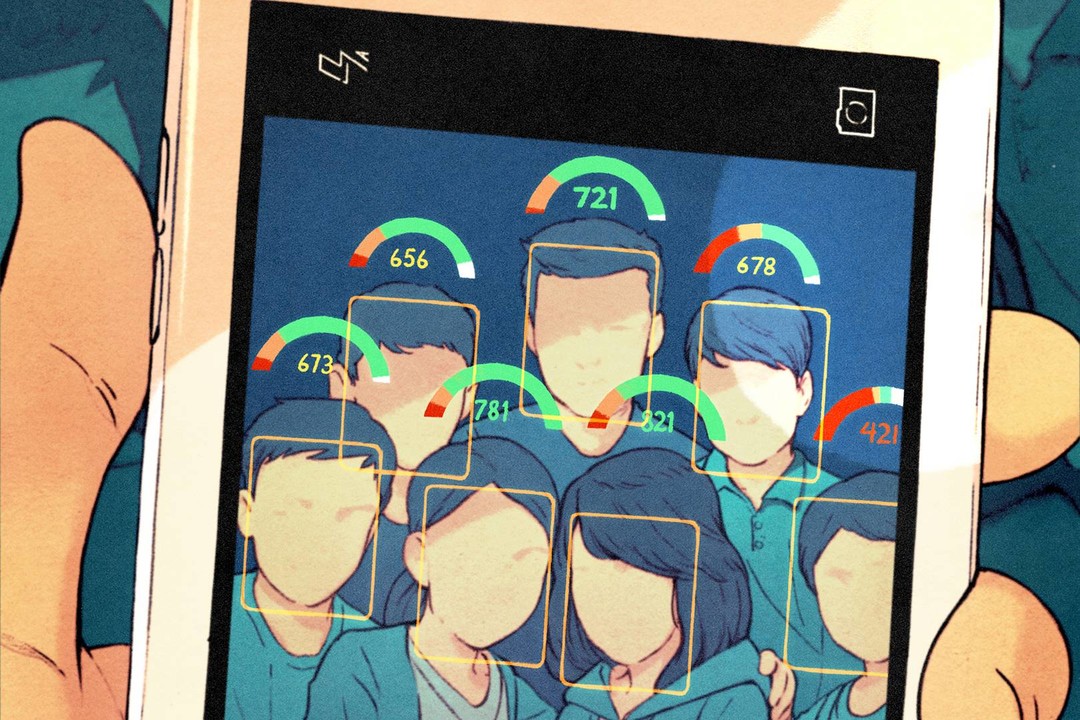The Historical Context of China’s Social Credit System
a
China’s Social Credit System (SCS) began as an ambitious initiative in 2014, aimed at fostering a more honest and trustworthy society. The idea was initially rooted in financial credit systems in 1980s but quickly expanded to cover broader aspects of social and economic life.
a
The Chinese government envisioned a system that could reward good behavior and discourage dishonesty, thereby enhancing social order and trustworthiness across the nation. As of 2023, the SCS has grown significantly, covering millions of citizens and businesses across various provinces.
a
The Functioning of China’s Social Credit System: How Does It Really Work?
a
The SCS operates through a complex network of local and national databases that collect and analyze data on individuals and businesses. By 2020, it was estimated that over 1.2 billion citizens were included in the system, with the data collected from various sources, including financial records, online behavior, and public interactions. This data is used to assign scores or ratings, which can range from high scores that indicate trustworthiness to low scores that signal potential risks.
a
The system rewards high-scoring individuals with benefits like streamlined access to loans, priority in job applications and hospital queues and reduced bureaucracy. For businesses, high scores can lead to more favorable contracts and better market opportunities. Conversely, those with low scores may face penalties such as travel restrictions, reduced access to credit, and even public shaming on official blacklists. By 2021, over 6 million individuals were reportedly restricted from purchasing airline tickets due to low social credit scores.
a
The primary objective of the SCS is to create a society where trust is incentivized, and harmful behaviors—such as fraud, tax evasion, and false advertising—are penalized. This, in turn, is expected to contribute to the overall stability and prosperity of Chinese society.
a
Misconceptions and Criticisms: Separating Fact from Fiction
a
The Social Credit System has been widely misunderstood, particularly in Western media, where it is often portrayed as an Orwellian surveillance tool that monitors every aspect of citizens’ lives. While the SCS does involve extensive data collection, the reality is more complex and varies across regions.
a
One major misconception is that the system is a single, unified program that monitors and controls all Chinese citizens uniformly. In reality, the SCS is decentralized, with different regions and municipalities implementing their own versions of the system, often with varying criteria and standards. For example, the system in Suzhou might prioritize punctuality in bill payments, while in Rongcheng, it might focus more on community service participation.
a
Critics, particularly from organizations like Human Rights Watch, argue that the SCS could be used to stifle dissent and infringe on individual freedoms. Their concerns include the potential for the system to be used as a tool of political control, where those critical of the government could be penalized under the guise of promoting social harmony. Human Rights Watch has pointed out cases where activists and lawyers have faced restrictions on their movement and business operations due to low social credit scores.
a
However, it’s important to note that many Chinese citizens view the system positively. Surveys conducted in 2018 and 2019 indicated that around 80% of Chinese people were either supportive or neutral toward the SCS. They see it as a means to enhance trustworthiness in a society where fraud and corruption have been significant issues. For many, the system is seen as a way to ensure fairness and accountability, particularly in business and public services.
a
The Impact on Chinese Society: Who Benefits and Who Suffers?
a
The SCS has brought both benefits and challenges to Chinese society. On the positive side, the system has helped to reduce instances of fraud and improve public behavior. For instance, in the city of Rongcheng, where the system has been implemented extensively, officials reported a significant drop in minor crimes and an increase in community participation.
a
The financial services sector, in particular, has benefited from the SCS. By providing a comprehensive view of an individual’s trustworthiness, the system has enabled more accurate credit assessments, leading to an increase in loan approvals for individuals and businesses with high social credit scores. By 2022, Chinese banks had issued over 500 billion yuan ($78 billion) in loans based on social credit assessments, a significant increase from previous years.
a
However, the system is not without its challenges. One of the main issues is the lack of transparency in how scores are calculated and the potential for arbitrary penalties. There have been reports of individuals facing restrictions for minor infractions, such as not paying utility bills on time or being late to a government meeting. This has led to anxiety and fear among some citizens, who worry about the potential repercussions of everyday actions.
a
Privacy is another major concern. The vast amount of data collected by the system, combined with China’s extensive surveillance infrastructure, raises questions about data security and the potential for abuse. In a society where internet use is heavily regulated, the SCS adds another layer of control that could be misused by authorities.
a
The Role of Technology in the Social Credit System: A Double-Edged Sword?
a
The SCS relies heavily on technology, particularly big data and artificial intelligence (AI). These technologies enable the system to process enormous amounts of information from various sources, including social media, financial transactions, and even facial recognition cameras. By 2023, China had deployed over 200 million surveillance cameras across the country, many of which are integrated with the SCS to monitor public behavior in real-time.
a
The use of AI allows the system to analyze patterns and behaviors more efficiently than human operators could, making it possible to assess the trustworthiness of millions of citizens and businesses simultaneously. However, this also introduces risks. The reliance on algorithms can lead to errors or biases, potentially punishing individuals unfairly. For instance, a person could be penalized for associating with someone who has a low social credit score, even if they themselves have not committed any infractions.
a
Public Perception: What Do Chinese Citizens Really Think?
a
Chinese public opinion on the SCS is generally more favorable than it might appear from outside perspectives. Many Chinese citizens see the system as a tool for promoting honesty and integrity, particularly in a society where trust in institutions and individuals has been historically low. A 2019 survey by the Chinese Academy of Social Sciences found that nearly 70% of respondents believed the SCS would improve social trust and fairness.
a
However, this support is not universal. Younger, more educated urban residents tend to be more critical of the system, especially concerning privacy and potential government overreach. In contrast, older citizens and those in rural areas often view the system as a positive development, providing a structured way to promote good behavior and discourage corruption.
a
What Lies Ahead for China’s Social Credit System?
a
China’s Social Credit System represents a bold and controversial experiment in governance. While it has achieved some success in promoting trust and accountability, it also raises significant ethical and practical questions. The SCS is still evolving, and its future will depend on how these issues are addressed.
a
As China continues to refine and expand the system, it will be crucial to strike a balance between maintaining social order and protecting individual rights. The global debate over the SCS highlights the broader tensions between state control and personal freedom, between the potential benefits of technology and its inherent risks. The outcomes of China’s Social Credit System will likely offer valuable lessons for other nations grappling with similar challenges in the digital age.


